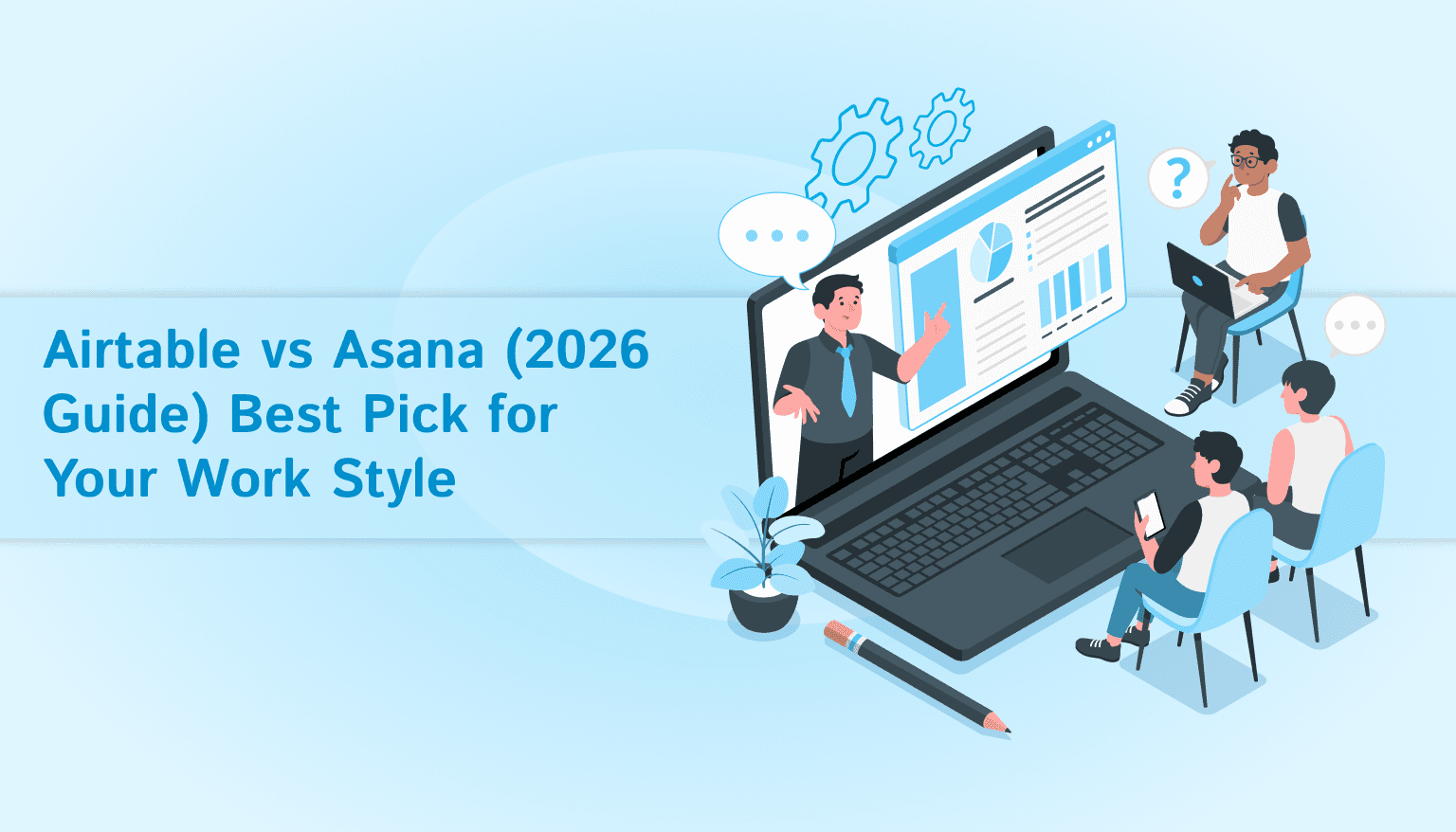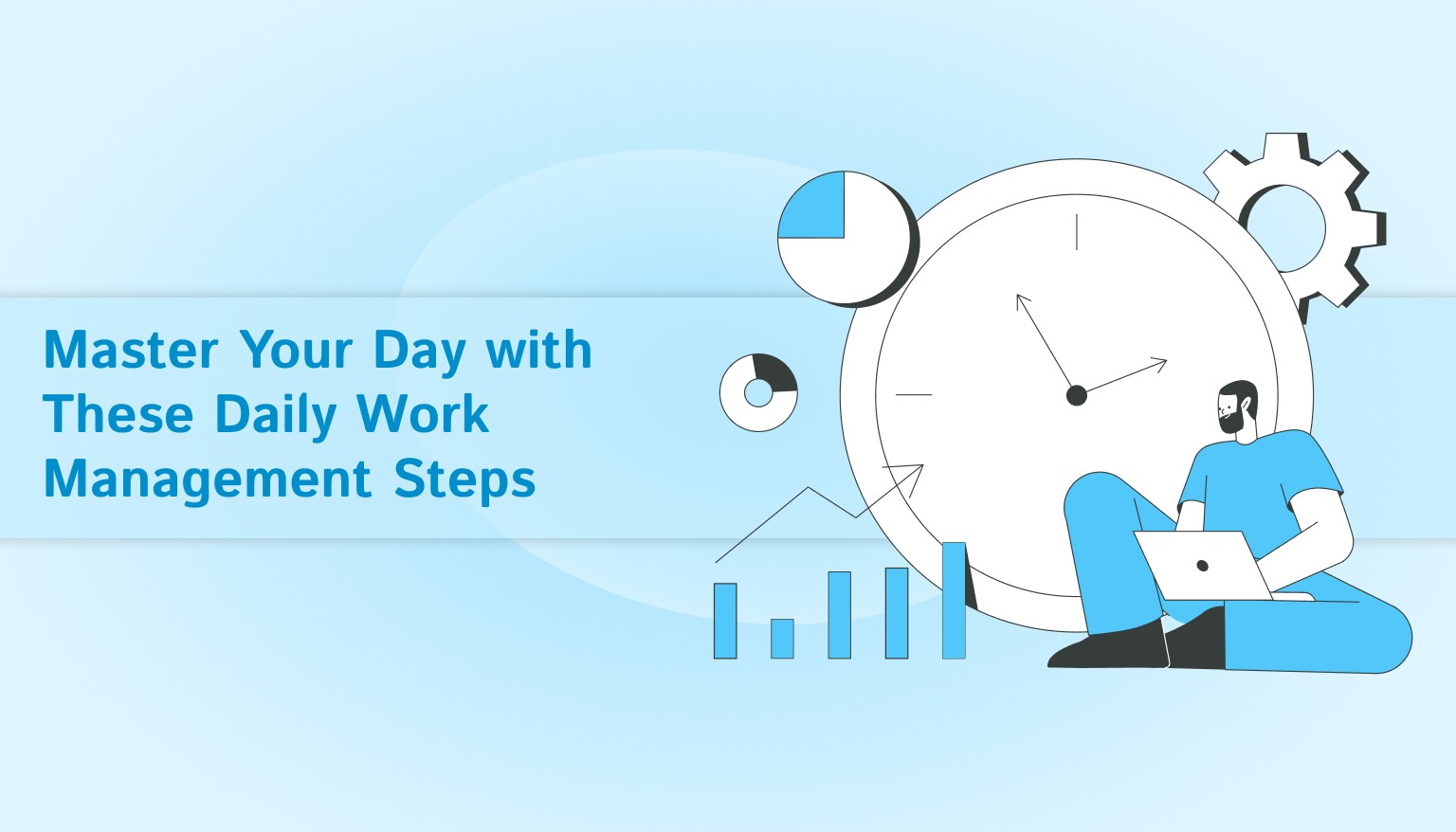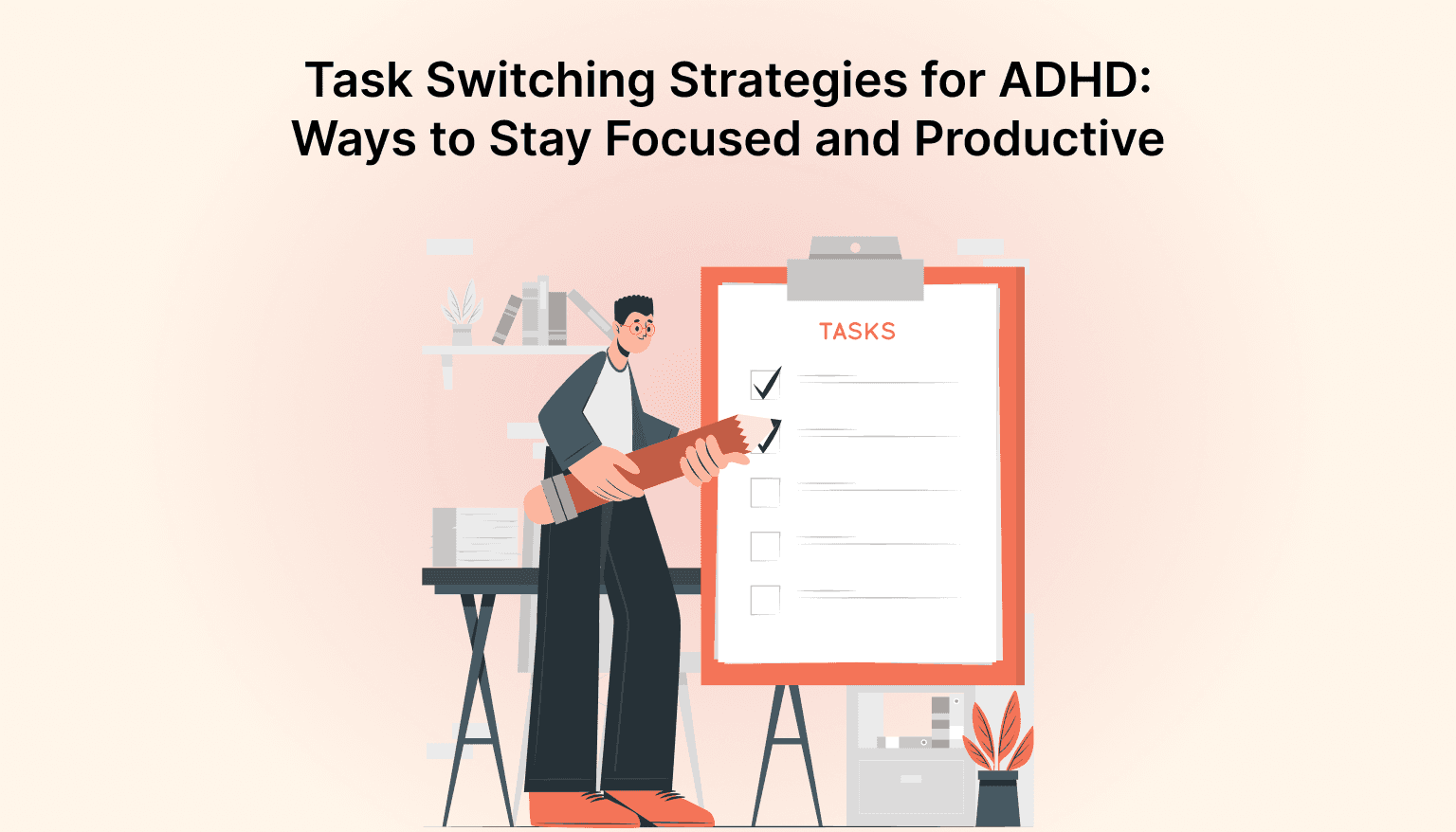Exploring the Role of AI in the Workplace for 2025

8
Ever feel like there’s never enough time in the day? Between overflowing inboxes, endless tasks, and constant digital noise, staying productive can feel impossible.
That’s where Artificial Intelligence (AI) comes in. AI isn’t just a tech buzzword; it’s a practical tool that can automate routine tasks, surface actionable insights, and streamline workflows. It lets you focus on the tasks that actually matter. As AI tools continue to evolve, their potential to reshape workplace dynamics grows.
This blog dives into how AI helps professionals reclaim their time, work smarter, and get more done without burning out.
TL;DR
AI boosts productivity: By automating routine tasks, AI frees up time for professionals to focus on high-priority work.
Efficiency through automation: AI tools handle repetitive, time-consuming tasks, leading to more streamlined workflows.
Data-driven decision-making: AI empowers better decision-making by analyzing data and offering actionable insights.
AI collaboration tools: AI-powered communication tools improve collaboration and efficiency, especially for remote teams.
Future of work: As AI evolves, it will continue to hold a larger role in the workplace, supporting professionals in making more strategic decisions.
How AI is Transforming Productivity in the Workplace?
Artificial Intelligence (AI) is reshaping business operations and how employees work. By automating repetitive tasks, streamlining operations, and supporting decision-making, AI is impacting the global workforce.
Key AI technologies, such as machine learning, natural language processing (NLP), and robotic process automation (RPA), are enhancing productivity. Machine learning helps AI systems improve over time, enabling smarter decision-making. NLP allows AI to interact in human language, powering tools like chatbots and virtual assistants.
Generative AI, like ChatGPT, creates content in response to user input, automating tasks like drafting emails. Tools like a paragraph generator can support professionals in drafting clear and structured text more efficiently, making everyday communication easier. RPA deals with repetitive tasks, such as data entry and record-keeping, freeing up time for more important work.
AI is increasingly used in industries like healthcare, insurance, and banking to improve decision-making and efficiency, driving productivity across sectors.
Now that we’ve seen how AI boosts productivity, let’s explore its core benefits in the workplace.
Key Benefits of Implementing AI in the Workplace
AI offers several benefits that directly impact workplace efficiency. Here are the core benefits of using AI in your daily operations:

Automating Routine Tasks: AI handles repetitive tasks like scheduling, customer support, and data sorting, freeing up professionals to focus on tasks that need critical thinking and creativity.
Improved Accuracy and Reduced Errors: AI systems work with precision, ensuring that tasks are completed without mistakes. This leads to greater reliability in tasks like data analysis and reporting.
Faster Processes: By automating manual processes, AI significantly speeds up workflows. Tasks that once took hours can be completed in minutes, allowing teams to get more done in less time.
Optimized Resource Allocation: AI can help businesses optimize how resources (time, people, and money) are allocated. AI-driven analytics can recommend the best ways to use resources efficiently based on historical data and predictive models.
Cost Savings: With AI managing repetitive tasks and improving process efficiency, businesses can reduce operational costs. These savings can be reinvested into more critical areas of the business.
With the clear benefits of AI in place, let's explore real-world applications and how AI is used across industries.
Akiflow centralizes tasks from multiple platforms, helping you stay on top of priorities and reduce decision fatigue. With AI-driven suggestions, you can prioritize effectively and maintain a clear, productive workflow.
Also read: 20 Practical Productivity Tips to Get More Done Every Day
Practical Use Cases for AI in the Workplace
AI is already making waves in various industries by automating processes and boosting productivity. Here are some practical examples of AI in action:
Customer Service Automation: AI-powered chatbots are being used extensively in customer service to handle basic queries, complaints, and provide support. This automation lowers wait times for customers and frees up human agents to fix more complex issues.
Data Analysis and Reporting: AI tools can analyze large datasets in real time to provide valuable insights. Professionals can use these insights to make better business decisions, better customer experiences, and optimize operations.
Time Management and Scheduling: AI tools like virtual assistants can automatically schedule meetings, set reminders, and prioritize tasks based on urgency. This helps professionals stay organized and focused throughout their workday.
Marketing and Personalization: AI is used to analyze consumer behavior and create personalized marketing campaigns. It helps businesses reach the right audience with tailored messages, improving engagement and driving sales.
HR and Recruitment: AI helps HR teams by screening resumes, shortlisting candidates, and even conducting initial interview rounds. Tools like Marlee further enhance this through motivation assessment and predicting work success, helping organizations build stronger, high-performing teams. This saves time for HR professionals, allowing them to focus on high-level decision-making.
As AI continues to improve productivity, let’s take a closer look at how it enhances collaboration, especially in remote work settings.
AI in Remote Work and Collaboration
With the shift towards remote and hybrid work environments, AI is forming an increasingly important role in facilitating collaboration. Here’s how AI supports teamwork:

AI-Powered Collaboration Tools: Platforms like Slack, Trello, and Asana have integrated AI to enhance collaboration, assign tasks, and track project progress. AI makes managing remote teams more efficient by automating task distribution and progress tracking.
Virtual Meeting Enhancements: AI tools are enhancing virtual meetings by providing automatic transcription, real-time language translation, and agenda management. These features make meetings more productive and accessible, especially for global teams.
Real-Time Monitoring: AI tools allow managers to monitor team performance in real time. These tools can track progress, provide feedback, and highlight any issues before they escalate, ensuring that remote teams remain on target.
Smarter File Sharing: AI-powered systems can categorize, tag, and organize files based on content. This makes it easier for remote teams to find documents quickly, improving overall workflow efficiency.
With AI enhancing collaboration, let’s turn our focus to how AI will shape the future of work in the years to come.
The Future of AI in the Workplace
AI’s influence on the workplace is expected to expand rapidly in the coming years. Here’s what the future holds:
Advancing Automation: AI will continue to evolve, automating even more complex tasks such as decision-making, project management, and strategic planning. As AI becomes smarter, it will take on more tasks that were once considered impossible for machines.
Changing Job Roles: AI will continue to transform job roles by handling repetitive tasks and enabling professionals to concentrate on more creative, strategic, and human-centric aspects of their work.
Enhancing Decision-Making: As AI tools become more advanced, they will provide deeper insights and predictive analytics, empowering professionals to make faster and more informed decisions.
AI-Augmented Work: Rather than replacing jobs, AI will augment human work by providing tools that enhance productivity, creativity, and decision-making. This synergy between humans and machines will define the future of work.
Also read: The Science of Blocking Time: A Smarter Way to Work
How Akiflow Helps Streamline Tasks with AI?
Akiflow is a powerful platform for professionals looking to integrate AI into their workflow for greater efficiency. By centralizing tasks and time management in one place, Akiflow eliminates the need for juggling multiple apps, streamlining daily tasks, and boosting productivity.

Task Integration and Time-Blocking: Akiflow syncs your calendar and tasks into one unified view, allowing you to create time-blocked slots for focused work. This feature helps verify that tasks are completed on time, minimizing distractions and keeping you on track.
Smart Prioritization: Akiflow uses AI to suggest priorities based on your workload and upcoming deadlines. This means that you can trust the system to help you focus on the most important tasks without second-guessing yourself.
Seamless Integrations: Akiflow integrates with a variety of platforms, including Gmail, Slack, and Todoist, bringing all your work into one central location. This reduces the mental load of switching between apps and allows you to focus on execution.
Daily Reviews and Adjustments: Akiflow’s intuitive dashboard enables quick daily and weekly reviews. You can adjust schedules, reprioritize tasks, and manage your workload more efficiently, all from one view.
Conclusion
AI isn’t just about automating tasks; it’s about helping you act on what truly matters and work smarter every day. By handling repetitive work, analyzing data, and streamlining workflows, AI frees up mental bandwidth so professionals can dedicate time to high-value, strategic work. Whether it’s managing projects, generating insights, or optimizing schedules, AI provides the support needed to achieve more in less time.
Akiflow is here to help. You can easily integrate AI into your workflow, centralize your tasks, prioritize what matters most, block time for deep work, and keep distractions at bay, all in one place. If you're ready to reclaim your focus, boost your productivity, and get more meaningful work done every day, try Akiflow today and experience a smarter, more focused workday.
FAQs
Q1: How can AI improve my productivity at work?
AI boosts productivity by automating repetitive tasks like data entry, scheduling, and email management. It can also prioritize tasks, provide smart reminders, and assist you in staying organized, allowing you to focus on high-value work that needs human creativity.
Q2: Will AI replace jobs in the workplace?
AI is unlikely to replace jobs entirely, but it will change the nature of many roles. By automating repetitive tasks, AI allows professionals to focus on creative, strategic, and complex work that requires human input, improving overall productivity and efficiency.
Q3: Can AI help improve employee learning and skill development?
Absolutely. AI-powered tools can personalize training programs by analyzing individual strengths, weaknesses, and learning patterns. This enables employees to focus on areas where they need improvement, accelerating skill development and making professional growth more efficient.
Q4: How does AI help with decision-making in the workplace?
AI provides data-driven insights by analyzing large datasets, uncovering patterns, and offering predictive analytics. This helps professionals make informed, faster decisions in areas like resource allocation, project timelines, and market trends.
Q5: How do I start integrating AI into my workflow?
Start small by adopting AI-powered tools that address specific needs. Use virtual assistants to manage scheduling, project management tools for task organization, and data analysis tools for insights. Gradually integrate more AI tools as you become familiar with their capabilities and as your needs evolve.



